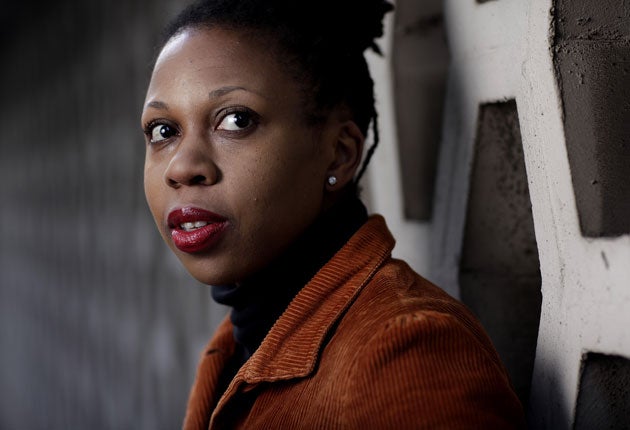'Invisible' children at risk from unofficial fostering
Youth survey claims one in 10 is involved in private care pacts

Your support helps us to tell the story
From reproductive rights to climate change to Big Tech, The Independent is on the ground when the story is developing. Whether it's investigating the financials of Elon Musk's pro-Trump PAC or producing our latest documentary, 'The A Word', which shines a light on the American women fighting for reproductive rights, we know how important it is to parse out the facts from the messaging.
At such a critical moment in US history, we need reporters on the ground. Your donation allows us to keep sending journalists to speak to both sides of the story.
The Independent is trusted by Americans across the entire political spectrum. And unlike many other quality news outlets, we choose not to lock Americans out of our reporting and analysis with paywalls. We believe quality journalism should be available to everyone, paid for by those who can afford it.
Your support makes all the difference.Hundreds of thousands of children may have been privately fostered in secret, according to new research by the British Association for Adoption & Fostering (BAAF).
One in 10 children surveyed claimed to have been looked after by someone other than a parent or close relative for at least four consecutive weeks, yet only a tiny fraction of this number were registered with local authorities. BAAF estimates that up to one million "invisible" children could have spent weeks – or even years – living with family friends, neighbours, distant relatives or unregulated nannies without the knowledge of child protection experts. "Invisible" children are at greater risk of being abused, neglected or forced into slavery or prostitution, it warns.
Six per cent of those affected said they weren't well looked after by private foster carers, while a half experienced anxiety and loneliness.
The research, published tomorrow, will launch the Somebody Else's Child campaign, which aims to increase awareness about what constitutes private fostering, and remind professionals of the need to help identify such children and notify local authorities.
Private fostering covers any situation where an unofficial arrangement is made for a child to be looked after by someone other than a parent, step-parent, aunt, uncle, grandparent or sibling for more than 28 days. It can also include teenagers who move in with a friend's family because of arguments at home and children who have been sent from overseas for education or health needs.
Such arrangements should legally be registered, as local authorities are obliged to assess the safety of the arrangements and support both child and carer. These obligations were strengthened in 2005 following the damning report into the death of Victoria Climbié in Haringey, north London. The eight-year-old from the Ivory Coast was entrusted into the care of her great-aunt Marie-Thérèse Kouao, but social workers were unaware of this private arrangement. Victoria was tortured to death by Kouao and her boyfriend Carl Manning in 2000.
David Holmes, chief executive of BAAF, said: "This survey is very surprising. If you extrapolate the numbers, we're talking about one million being privately fostered at some time in their lives. Even if some children didn't understand the questions, this is still a large number and many more than local authorities know about.
"While the majority are well looked after, we know in extreme cases that things go very wrong for these children because they go under the radar. They may be far away from home, with no close family and this is how vulnerable children can disappear. Yes, this is only a very small minority, but we have examples of children brought into domestic slavery and prostitution, so it is essential local authorities know about these children." Just over a 1,000 children aged between nine and 16 from across the UK were surveyed by Dubit, the youth research specialists. Children aged between 13 and 16 were the most likely to have been privately fostered, with a high proportion in London. The majority said they were well looked after.
Fewer than 2,000 privately fostered children were registered with their local authority last year, despite a legal obligation for parents and private fosters to inform authorities six weeks before the arrangement starts. In an emergency situation, for example, if the parent is suddenly taken ill, social services should be told within 48hours. This means that teachers, health professionals, probation officers, and the public more generally, must be ready to ask children who seem unsettled, or suddenly change schools, who they are living with, says BAAF.
The Children's minister, Delyth Morgan, said: "We must do more to ensure local authorities are always notified about these arrangements."
Precious's story: 'Mum just didn't want children'
Precious Williams, 38, from London was sent to live with private foster carers just days after she was born. She has written a book about her life, 'Precious', to be published in August.
"My mum advertised for a nanny in Nursery World. At 10 weeks old I went to live with an elderly white woman in West Sussex and her invalid husband. I was there alone until I was four. Then my mother arrived with my 14-year-old sister from Nigeria, who I had never met.
"My foster mother did her best but there was a lot of racism around. My mother would occasionally visit and she would get angry because I couldn't speak her language and my hair looked wild. I grew up with a total sense of confusion and self-hatred about my hair and my skin colour for years. I stayed there until I was 18.
"Private fostering is still really common among the Nigerian and other African communities. My Mum has told me, since then, that it wasn't easy being a single parent back then. But, basically, I think she just didn't want children."
Join our commenting forum
Join thought-provoking conversations, follow other Independent readers and see their replies
Comments